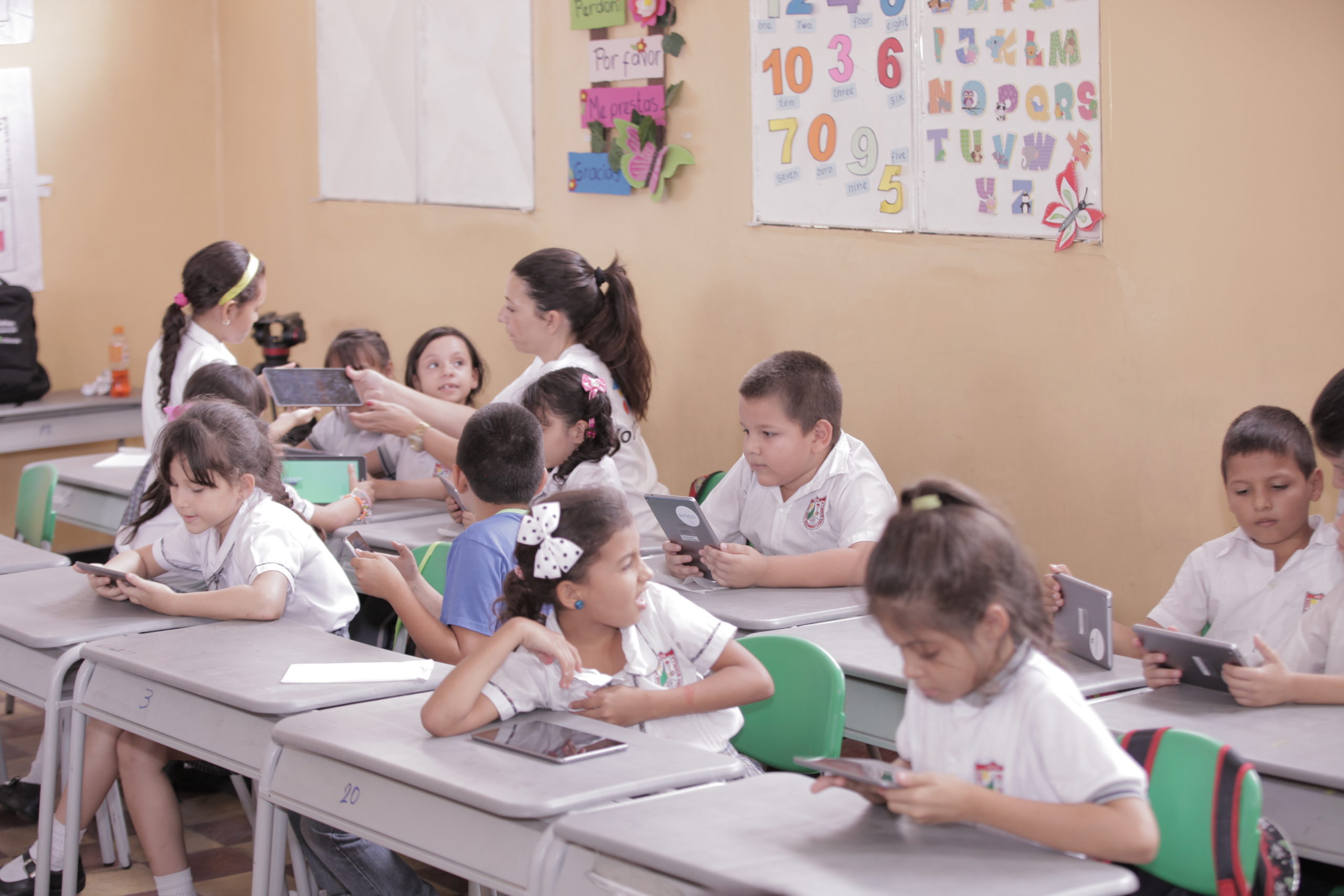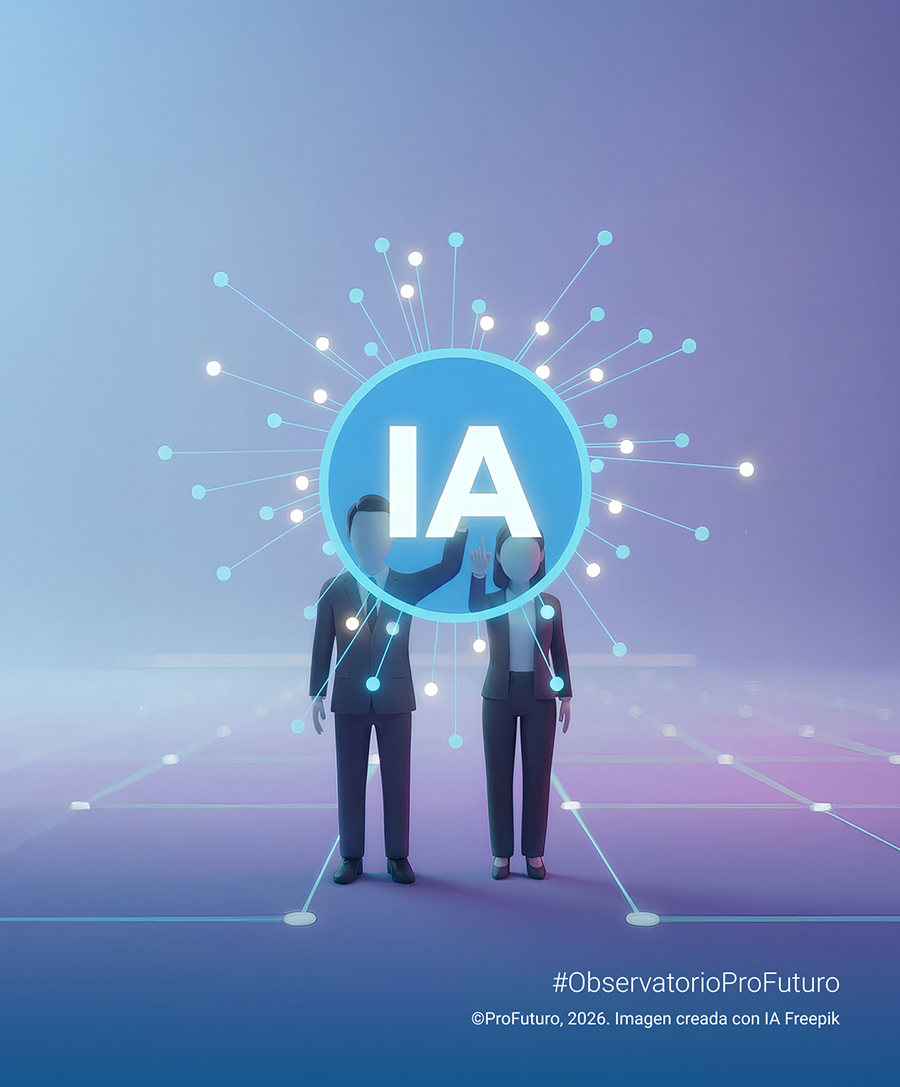The teaching of computational thinking is a great example of how technology can act as a link between learning and society, helping to solve problems and contributing to the betterment of society. Good pedagogical projects of computational thinking are adapted to the social reality in which they are inserted, to the social needs and concerns of their students (Pereiro and Penas, 2017). And they help to transform and improve that reality. Let’s remember what Beatriz Ríos, education coordinator at Fundación Telefónica Movistar Uruguay, told us in this regard: “The great value of computational thinking is precisely the possibility of divergence, of being able to go down different paths and to be able to make your own… To understand that all answers are possible. That change is possible. In this way, children who come from homes where situations of violence are very strong in many cases, can begin to have the ability to listen, to respect and manage time from another place, to understand that what the other person says is also valid, and above all, that they are listened to, which improves their self-esteem. Computational thinking gives them the possibility of being able to expand their world and their possibilities: they begin to see that, little by little, they are able to solve things; and that is extremely valuable because, many times, they not only propose to change their situation, but to change the situation of their context, things that their parents had not even imagined or did not believe they could do” (You can see a summary of the computational thinking workshop here).
Conversely, we have seen how didactic proposals based on computational thinking are highly adaptable to the different contexts in which it is applied and to the different student and teacher levels. All this makes it a very suitable pedagogical practice for developing action-research. Action research is a way of understanding teaching as a constant process of research. Teachers reflect on their own practice and make improvements in their teaching and learning methods. Learning by doing. Learning through planning, action, reflection and change (Pérez Van-Leenden, 2019). And learning alongside the students. With computational thinking, the teacher experiments, tests and investigates new ways of developing logical-mathematical thinking with their students, through small, progressive projects. As they act, they can see what works best for them and what doesn’t work as well.
How can action-research best be applied to teaching? According to Esperanza Bausela, the process can be summarised in four phases: A) Diagnosis and recognition of the initial situation. B) Development of a critically informed action plan to improve what is already happening. C) Taking action for the implementation of the plan and observation of its effects in the context in which it takes place. D) Reflection on the effects as a basis for new planning (Bausela, 2004).
Teachers, who do not have to be great experts in programming or robotics to teach computational thinking, can use action-research by applying these phases which, if accompanied by a solid didactic proposal and sufficient training, evaluation and support resources, will allow them to learn as they go, not only about computational thinking, digital competence, programming, robotics and 3D printing and design, but also about new methodologies and strategies they can bring to the classroom to improve the learning experience of their students.
REFERENCES
Bausela Herreras, Esperanza (2004) La docencia a través de la investigación-acción. [Teaching through action-research.] Revista Iberoamericana De Educación, 35(1), 1-9. Retrieved from https://rieoei.org/RIE/article/view/2871
Pereiro, M., & Penas, Y. (2017). Pensamiento computacional: creación y desarrollo de aprendizajes y conocimientos reales desde una perspectiva inclusiva y de compensación de las desigualdades. [Computational thinking: creation and development of real learning and knowledge from a perspective of inclusion and compensation of inequalities.] Revista de Estudios e Investigación en Psicología y Educación, [Journal of Studies and Research in Psychology and Education], (13), 347-351 https://doi.org/10.17979/reipe.2017.0.13.3228
Pérez-Van-Leenden, M. (2019). La investigación acción en la práctica docente. Un análisis bibliométrico [Action-research in teaching practice. A bibliometric analysis] (2003-2017). Magis, Revista Internacional de Investigación en Educación, [International Journal of Educational Research], 12 (24), https://doi.org/10.11144/Javeriana.m12-24.ncev






